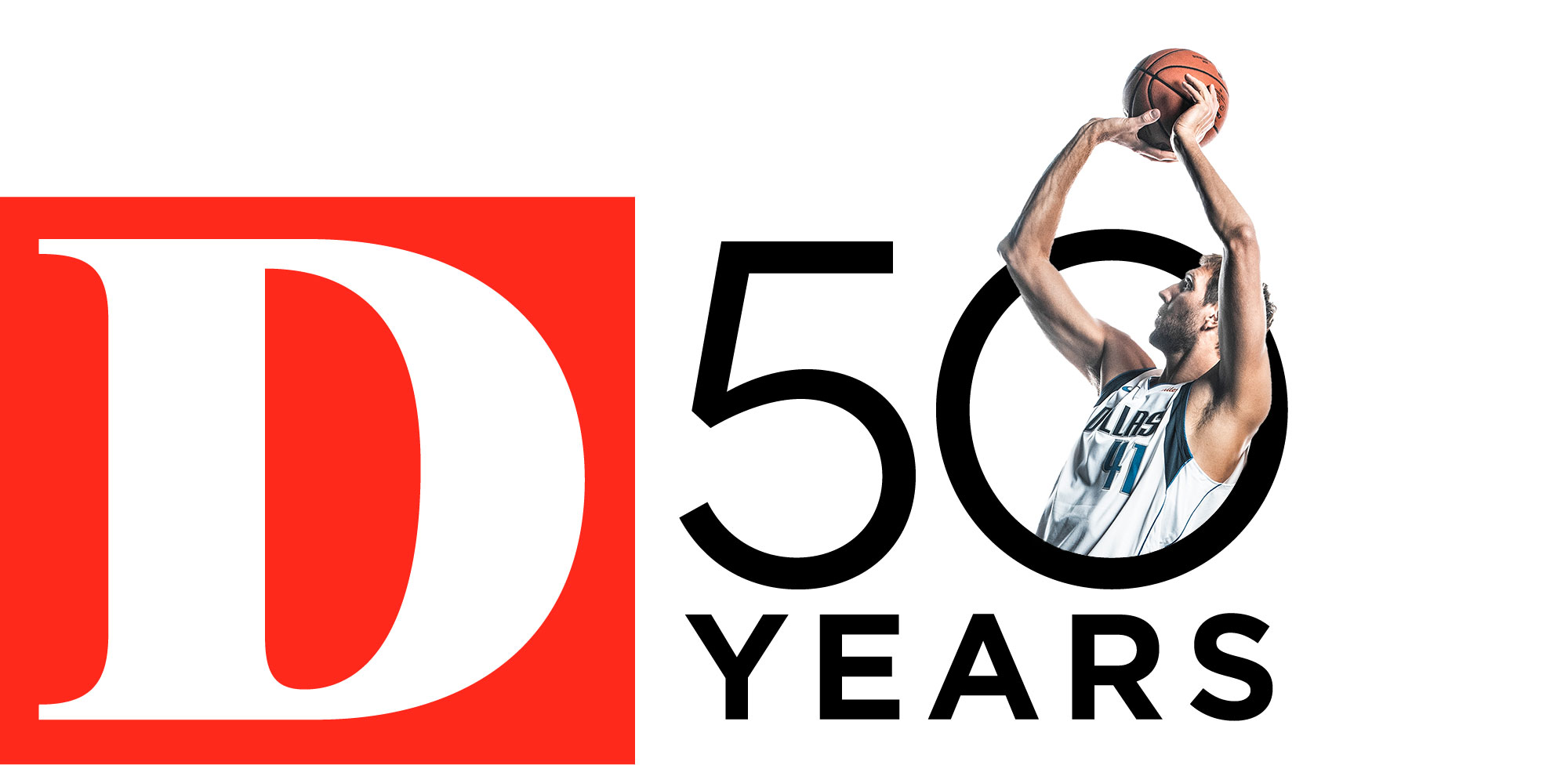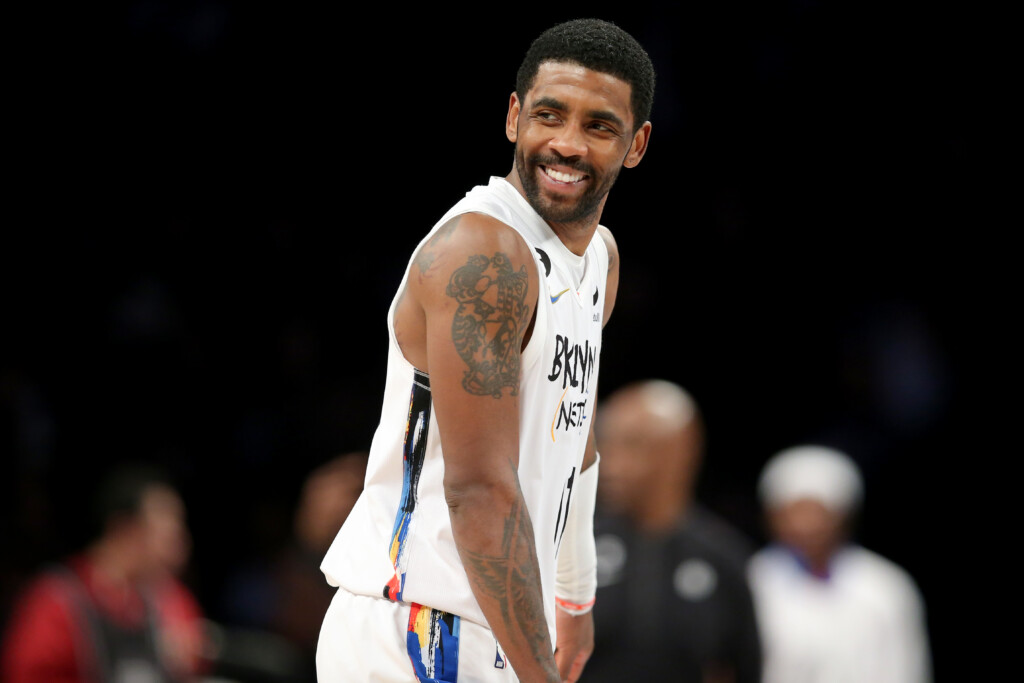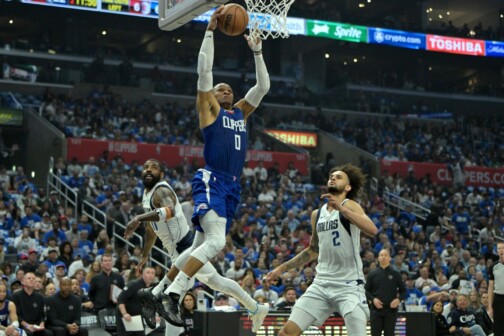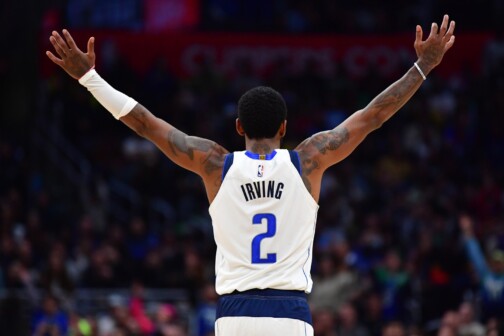This is almost certainly a mistake.
I say “almost certainly” because I cannot catapult myself three years into the future to verify that Kyrie Irving, Dallas Maverick, parted ways with his latest and perhaps last NBA employer as poorly as Kyrie Irving, Cleveland Cavalier; Kyrie Irving, Boston Celtic; and Kyrie Irving, Brooklyn Net did before him.
But I say “mistake” because history and temperament tell us he will. This is who he has been, and until proven otherwise, this is who he remains: a franchise-altering talent in every sense of the phrase, a player whose spellbinding ability transforms teams upon arrival and who also ensures they never look close to the same once he departs.
In his first stop, that included an NBA championship. Yes, Irving did so alongside the greatest player in league history at his apex, but the Cleveland Cavaliers would still be awaiting their first NBA title had Irving not been there to drill the series-clinching shot, that gorgeous pull-up three yanked straight out of every 9-year-old’s fantasy to create a gleaming moment on the grandest stage. This is why the Mavericks paid dearly to acquire him: because, at his best, Kyrie Irving scores when he wants, where he wants, against whomever he wants.
And, make no mistake, Irving is at his best right now. This is not landing Kristaps Porzingis on the heels of a catastrophic injury, nor is it banking on a change of scenery to revitalize Rajon Rondo. Since returning from suspension on November 20—we’ll get there—Irving has averaged 27 points per game and more than five rebounds and assists while hitting nearly 50 percent of his field goals and 40 percent of his threes. In terms of present-day ability, he is comfortably the best player Luka Doncic will have played alongside. It is a testament to how good Irving remains at age 30 that you can take that at face value, independent of any damning with faint praise that comes with Doncic having never played with an All-Star teammate up until now. The Mavericks now employ the premier backcourt in basketball, and that backcourt is talented enough to form the backbone of an NBA championship team.
This is the upside to the deal. If it is realized—consistently, across multiple seasons—that upside is well worth moving Spencer Dinwiddie (whose game, even on its best day, is a faint facsimile of what Irving provides), Dorian Finney-Smith (vital and beloved, who nevertheless tops out as the fourth-best player on a championship team), and a 2029 first-rounder (which, if Luka is still around, may not yield much more than Keon Johnson, who was selected with the first draft pick Dallas sent New York for Porzingis and who you need a search engine to learn anything meaningful about) along with two second-rounders. (The Mavericks also got back Markieff Morris, who is probably washed and who, as my 77 Minutes in Heaven co-host Tim Cato pointed out on our reaction show, still likely plays more than JaVale McGee the rest of the way.)
There are operating costs. A threadbare rotation swapped two useful players for one. An already-struggling defense will sag further without Finney-Smith. The team with only two ballhandlers still employs only two ballhandlers. But superstars shift destinies in the NBA, and Irving is among that precious few.
Throwing everything else aside for a moment, it will be fun as shit to watch Luka Doncic and Kyrie Irving play basketball together. This is the point of sports as an entertainment vehicle, after all, and basketball aesthetics get no better than Doncic pairing up with a ballhandler who shreds defenses in a totally different way. Irving manipulates a basketball like it’s a yo-yo and once he gets to the rim he contorts in mid-air like he’s being animated in stop motion. When this goes well, it will be exhilarating, enthralling. Luka Doncic and Kyrie Irving, however long they last, will be like nothing you’ve ever seen before in Dallas.
And yet.
Three other NBA franchises have employed Irving before the Mavericks. None of those three miss him. Rather than stay on the fast track toward becoming a Cleveland icon, Irving forced his way out a year after his championship-winning shot, reportedly going so far as to threaten to delay a surgical procedure until the regular season—thereby missing games—if the Cavaliers didn’t send him somewhere to be the focal point of a franchise rather than remain LeBron James’ right-hand man.
That somewhere, Boston, now loathes him for publicly committing his future to the Celtics, only to decamp for a division rival less than a year later after clashing with one of the team’s young stars and melting down in his final playoff series.
Then came Brooklyn, where he butted heads with his first head coach, openly undermined the second’s authority, and demanded a trade away from the third just 19 days after asserting that no one on the Nets’ roster was “halfway in” despite appearing infrequently enough to make the notoriously brittle Porzingis appear like an iron man.
Games played since 2019:
— Iztok Franko (@iztok_franko) February 3, 2023
Kyrie Irving 143
Kristaps Porzingis 193
There is a “Well, actually” baked in, of course, for those inclined to defend Irving’s refusal to get vaccinated against COVID-19 (thereby sitting out home games for most of the 2021-22 NBA season pursuant to what was then New York City law) and/or his decision to disseminate antisemitic propaganda on his Twitter account, then mostly refusing to apologize for it until that became part of the terms for reinstatement from a resulting suspension. Those incidents comprised the bulk of his missed time, although not all; he played just 20 games in his first season due to a shoulder injury. They are the flip side of the conviction that has led him to throw his weight behind far more admirable causes like his relationship with and ongoing support of the Standing Rock Sioux tribe, donating a home to the family of George Floyd, paying off student loan debt to HBCU students, and offering financial assistance to WNBA players who opted out of playing during the pandemic in 2020 due to safety concerns.
Just as Irving scores when he wants, he does what he wants, too, circumstances and surroundings be damned. At best, he is mercurial and unreliable. At worst, the last seven years give license to question everything about him beyond his talent. Such as how much he cares about winning when he asked off the sixth-best team in basketball, fronted by Kevin Durant. And whether secondary motivators—history, legacy, belonging—carry any weight when he wanted out of the city that worshipped him as a championship hero and the city where he led one of the two most storied basketball teams ever. If he’s capable of sublimating himself to Doncic for an extended period, given that he couldn’t with James and, even after teaming up with Durant, left when they were closer than they’d been in two years to winning a championship. Most of all, what makes Dallas an environment more conducive to long-term harmony than the three before it? For that matter, what makes anyone so certain such a place even exists for Kyrie Irving in the NBA?
The Mavericks know all of this, and they made this move anyway, because they were mired in a pit they dug themselves. Several factors within their control—Porzingis underwhelming after his move to Dallas, losing Jalen Brunson for nothing in free agency, playing it safe in 2019 free agency, botching most of 2020 draft night—plus a huge one mostly outside of it—Doncic maturing too quickly for the team to tank very long, thereby preventing them from acquiring more lottery picks—intermingled to create a predicament where the team asked too much of Doncic and had precious few avenues to change his supporting cast.
They could not draft their way out of it, because they have few picks and even less time for them to mature with Doncic’s next contract never too far off in the horizon. They could not count on landing a star in free agency, either, due to a near-total lack of cap room in the immediate future and a very-total failure to do so in the years they had it available. Whenever the next unblemished game-changing talent hits the trade market, the Mavericks could be outbid by a number of teams with more assets.
Dallas was desperate, and this is what desperate teams do: they talk themselves into whatever they need to talk themselves into. They have no choice but to believe that this will work, that Irving’s awareness of his own radioactivity lends itself to him being his best self. If nothing else, they’ll probably be right through the remainder of this season, up to his free agency; refer back to the numbers and good conduct Irving put up from the end of his suspension until his trade demand, which was precipitated by him not receiving an extension offer he found suitable.
But while the Dinwiddie/Finney-Smith/picks package will be a pittance if Irving plays to his potential, it could cripple the Mavericks if he walks in free agency in five months. Irving holds the cards this offseason, and what becomes his north star when Dallas pays him what he asks? Little, if any, of what has driven him before will work in the Mavericks’ favor. Perhaps the fear of getting bounced from the league might, although last season is a sharp reminder that Irving isn’t afraid to sacrifice his livelihood for his beliefs, however misguided.
Ultimately, their greatest hope lies in the power of change. There is precedent for it elsewhere: 19 years ago, the Detroit Pistons made a trade-deadline swoop for Rasheed Wallace, then a 29-year-old career malcontent. Wallace rewarded them with a title, then four more seasons of quality service en route to becoming a Detroit hero and reinventing himself as a beloved elder statesman leaguewide.
Perhaps Irving becomes the Dallas equivalent: the black hat turned Doncic’s white knight. Squint, and you can see the pieces fall into place around them—continued maturation from Josh Green and Jaden Hardy, the usual yeoman work from Maxi Kleber and Reggie Bullock, whatever else they can cobble together from Christian Wood (who fits this new roster even less than the one before), Tim Hardaway Jr., and the two first-round picks they control in between the final one they owe New York for Porzingis and the 2029 pick they’ll send Brooklyn for Irving. Other teams will have more, of course, but they won’t have Doncic, and now Doncic has a legitimate running mate. This is within the realm of possibility. This can happen.
But once upon a time, Kyrie Irving, Cleveland Icon was possible. So was Kyrie Irving, Celtics Legend. And Kyrie Irving, Co-Architect of The First Brooklyn Nets Title. None of those realities came to pass, first and foremost because Kyrie Irving stood in their—and his own—way. He remains beholden to no one and nothing in the NBA aside from his own success, which is a choice he has been able to make in part because another team has always come along to rescue him from his failures.
Now the Mavericks have become the latest “another team,” and it is hard to imagine a fifth one emerging to bail them out if they’re wrong. They have chosen the path of greatest reward, presuming they dodge its pitfalls. No one else has yet. And no one will be surprised when Dallas can’t, either.
Get the ItList Newsletter
Author






